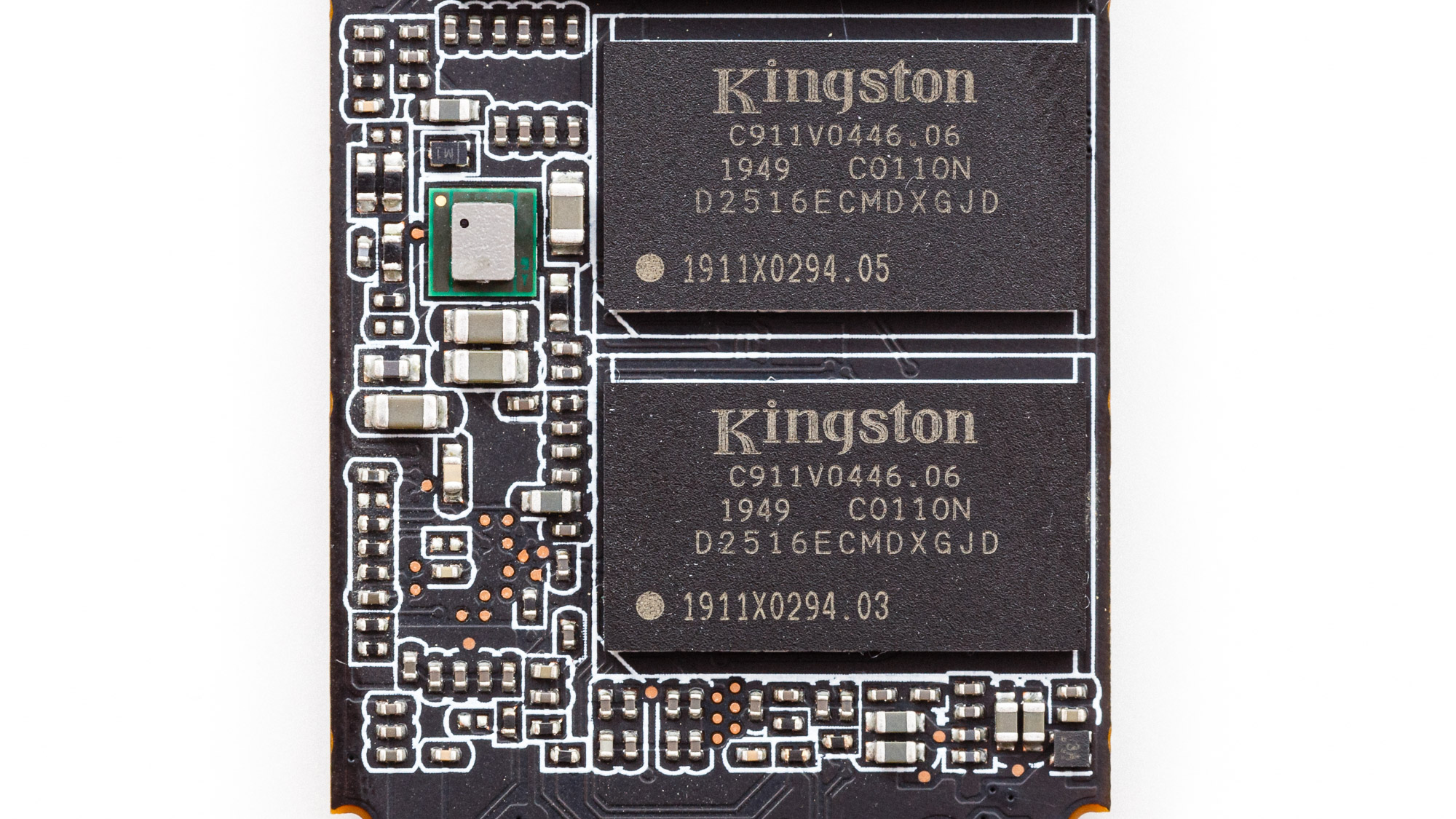Why you can trust Tom's Hardware
With Silicon Motion’s SM2262EN is at the heart of Kingston’s KC2500, paired with Kioxia’s BiCS4 96L TLC, these make for one of the most responsive SSD hardware combos going. Kingston’s firmware optimizations have led to drastic increases in this SSD’s performance across the board. With the SLC cache adjusted to deliver higher performance sooner during transfers, Kingston’s KC2500 is more responsive to requests than almost any other SSD available. It thrashes workstation and prosumer workloads and is a top dog when it comes to game data loading.
That said, it isn’t the most efficient contender when copying around large datasets.And, while Kingston’s KC2500 features some very secure encryption and responsive performance most of the time, pricing is an issue and it has some very tough competition. If the XTS-AES 256-bit encryption isn’t a requirement, we’d recommend you check out the Corsair Force MP600 or Samsung’s 970 EVO as premium alternatives.
But for those with more write-heavy workloads looking for the best consistency, Samsung’s 970 EVO Plus gets our pick. Although Kingston’s KC2500 outperformed Samsung’s 970 EVO Plus quite a bit in today’s application testing, for pure file read/write/copy performance, Samsung’s offering is a bit more robust and consistent. Plus, it’s sustained performance is almost unmatched. Not only that, while less complex, it also features AES 256-bit encryption and costs less.
If you have a new system supporting PCIe 4.0, going for an SSD like Corsair’s Force MP600 is probably the better route. Not only is the Force MP600 cheaper and all-around faster premium alternative based on the same hardware as Seagate’s FireCuda 520, but it also comes with AES 256-bit encryption support rather than the FireCuda 520’s basic TCG Pyrite support. It even boasts higher endurance ratings than any other drive compared at up to 1,800 TB.
However, buck for buck, Adata’s XPG SX8200 Pro is currently one of the best values out, although it lacks any sort of encryption support. The Adata XPG SX8200 Pro is, of course, a very fast opponent, especially considering it is clocked faster and optimized for consumer workloads. While both traded blows test after test, Kingston’s KC2500 proved more consistent than Adata’s XPG SX8200 Pro when sequentially writing to it, sustaining roughly 260 MBps faster direct-to-TLC write speeds after the SLC cache exhausted.
Still, there are a few other Silicon Motion SM2262EN based SSDs that may prove to be just as good values. At 1TB most of these alternatives are roughly $80 cheaper than the Kingston drive. Mushkin’s Pilot-E could do the trick with its AES 256-bit encryption support, though it has a shorter three-year warranty. If you want that five-year warranty, Adata’s XPG Gammix S11 Pro or HP’s SSD EX950 have also proven themselves as decent alternatives in past reviews. All of these make great value buys for gamers just as much as the prosumer, they just aren’t as secure.
MORE: Best SSDs
Get Tom's Hardware's best news and in-depth reviews, straight to your inbox.
MORE: How We Test HDDs And SSDs
MORE: All SSD Content

Sean is a Contributing Editor at Tom’s Hardware US, covering storage hardware.
